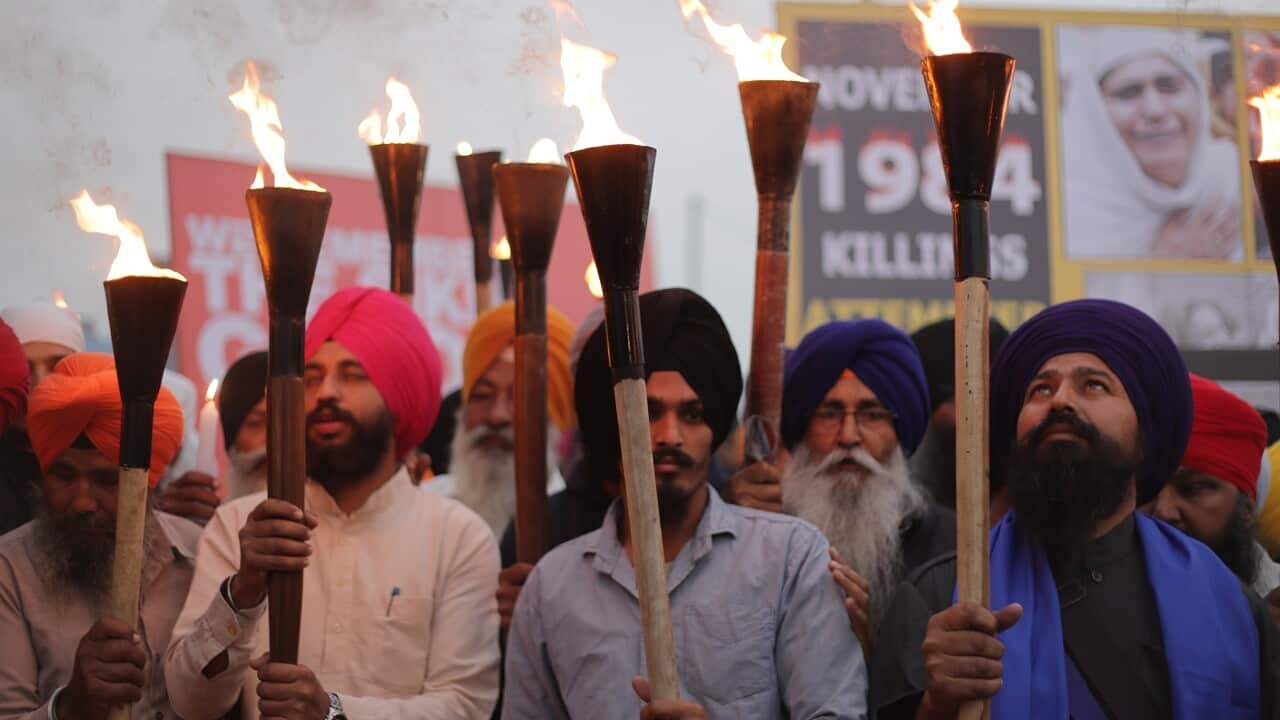More than three decades after the brutal anti-Sikh violence in India’s national capital claimed the lives of thousands of Sikhs, a court has awarded the death sentence to a man convicted of killing two Sikh men in 1984 and handed life imprisonment to another.
Yaspal Singh (55) and Naresh Sherawat (68) were found guilty by the Patiala House Court in New Delhi last week of killing two Sikh men in the Mahipalpur area of Delhi after the assassination of former Prime Minister of India, Indira Gandhi by her Sikh bodyguards on October 31, 1984.
The death sentence handed to Yashpal Singh is the first in cases related to the anti-Sikh violence after another convict Kishori Lal who was found guilty in five cases in 1996 and handed capital punishment by the trial court which was later commuted to life imprisonment.
Both the convicts were also fined Rs 3.5 million (AUD $70,000) each.
Many top leaders of Congress - the party in power in India at the time – were accused of inciting violence against Sikhs after Mrs Gandhi’s assassination.
Members of the Sikh community, including many families of those killed in the 1984 anti-Sikh pogrom were present outside the court amid tight security before the judgement was pronounced.
“This is the beginning, in coming days, Sajjan Kumar and Jagdish Tytler, the alleged political perpetrators of the riots, will also get death penalties,” said the family member of a riot victim.
While the Sikh community welcomed the court judgement that came after a special investigation team appointed by India’s top court in 2015 investigated the previously closed cases, many eagerly await the fate of other leaders accused of inciting violence.
Some were also dissatisfied with the delay in ruling and the number of accused brought to book.
One such victim, narrating her ordeal said: "We were viciously attacked, beaten up. (We kept requesting) please don't beat us. Someone's head was split up, somebody's throat slit," she added, "what good will one death sentence do? The fire in our hearts will burn out when all of them are punished."
'When a massive tree falls'
According to Indian government records, nearly 3,000 Sikhs were killed in the country in the anti-Sikh violence that gripped New Delhi and some other parts of India after Beant Singh and Satwant Singh shot and killed Prime Minister Indira Gandhi on the morning of October 31, 1984, to avenge the military action at the Golden temple - Sikhism's holiest shrine, in June of that year.
While some witnesses have come forward with claims they saw leaders of the then ruling party - the Congress- inciting the mob to kill the Sikhs, none of them has yet been found guilty even as some continue to face investigation and the courts. Accounts by journalists and witnesses reveal the police and the administration did not act to stop the marauding mob of rioters baying for the blood of innocent Sikhs in Delhi. Even with Delhi housing an Army cantonment, the Army wasn't pressed in to suppress the violence - and killer mobs ran riot, looting Sikh properties, raping women, stabbing and setting fire to Sikh men by placing burning rubber tyres around their necks.
Accounts by journalists and witnesses reveal the police and the administration did not act to stop the marauding mob of rioters baying for the blood of innocent Sikhs in Delhi. Even with Delhi housing an Army cantonment, the Army wasn't pressed in to suppress the violence - and killer mobs ran riot, looting Sikh properties, raping women, stabbing and setting fire to Sikh men by placing burning rubber tyres around their necks.

'Rights and Justice' march, by the Sikh hardliner group Dal Khalsa, to protest against the Sikhs carnage of 1984, in Amritsar, India, 03 November 2018. Source: EPA
Rajiv Gandhi - the son of Indira Gandhi - who was sworn in as India's prime minister after her assassination, at a public rally said about the violence: "once a mighty tree falls, it is only natural that the earth around it shakes".
Since this pogrom - one of the worst in modern India- a number of committees and commissions were constituted but justice has continued to elude the families of the victims.
But Monday's verdict has renewed the hopes of the victims.
"It is too little too late but that doesn't mean we cannot try to get convictions in some cases. We have been fighting for the last 34 years. It's absolutely necessary to show the world that nobody is above the law," HS Phoolka who is representing some of the victims in several cases told NDTV.
The Supreme Court appointed special investigation team reopened 60 cases of violence out of the total 293. It filed "untraced report" in 52 cases and eight cases are being investigated in which a Congress leader, Sajjan Kumar is an accused.



